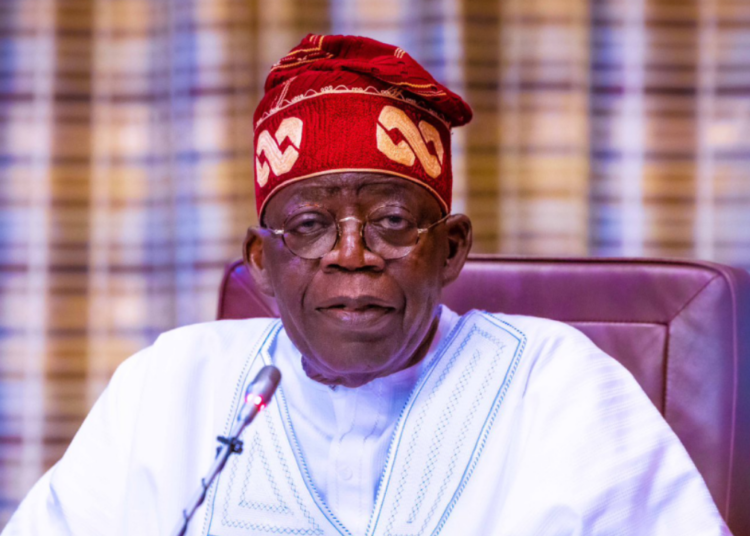The organised labour, manufacturers and economic, financial and legal experts have warned the federal government not to remove electricity subsidy as canvassed by the International Monetary Fund (IMF).
This is coming at a time when the country is battling with a cost of living crisis brought on by the removal of fuel subsidy, on the advice of the IMF and the World Bank.
Nevertheless, the Fund, in its recent report, advised the government to completely phase out fuel and electricity subsidies as part of measures to address its economic challenges.
These subsidies, which it deemed inefficient and ineffective in reaching intended beneficiaries, were identified as worsening the nation’s fiscal challenges and hindering efforts to address poverty and food insecurity.
In its report entitled ‘IMF Executive Board Concludes Post Financing Assessment with Nigeria,’ the IMF reiterated the importance of eliminating the subsidies to redirect resources towards more targeted and impactful social welfare programmes.
Amidst the prevailing cost-of-living crisis, the IMF proposed targeted social transfers to provide temporary assistance to the most vulnerable segments of the Nigerian population.
“Temporary and targeted support to the most vulnerable in the form of social transfers is needed, given the ongoing cost-of-living crisis. Fuel and electricity subsidies are costly, do not reach those that most need government support, and should be phased out completely,” it said.
While the removal of petrol subsidy, implemented in May 2023, was aimed at addressing the nation’s fiscal challenges, it has also worsened living standards, with the disposable income of Nigerians experiencing a continuous decline amid inflationary pressures.
The IMF also drew attention to the economic hurdles confronting Nigeria, emphasising the nation’s stalled per-capita growth and mounting poverty levels.
Against the backdrop of these challenges, Nigeria finds itself grappling with a severe cost-of-living crisis, further compounded by low reserves and limited fiscal space that constrain the government’s policy options, the fund said.
But the Nigeria Labour Congress (NLC) yesterday expressed its strong opposition to the advice of the IMF for Nigeria to phase out electricity subsidies.
The labour centre, in a chat with LEADERSHIP yesterday, advised President Bola Tinubu not take such advice from IMF and the World Bank, describing them as anti-people forces.
NLC accused the IMF and the World Bank of pushing Nigeria to the edge of economic collapse by making such demands, especially at a time when the country is still reeling from the trauma and confusion of the extant adjustments in electricity tariffs and exchange rates.
The NLC argued that higher electricity tariffs would hurt the competitiveness of the Nigerian manufacturing sector, which is already struggling with low productivity, high costs, and poor infrastructure.
NLC head of information and public affairs, Comrade Benson Upah also queried the logic of devaluing the Naira, which he said would only increase the burden of foreign debt servicing and fuel inflation.
NLC further criticised both IMF and the World Bank for being hypocritical and insensitive, as they never consider the impact of their policies on the welfare of the Nigerian workers and the masses.
The labour centre pointed out that there is a clear link between the purchasing power of the people and their ability to pay for electricity and other essential services.
In their reactions, Civil Society Organisations (CSOs) in Nigeria called on the government to be careful in taking advice, stating that removing electricity subsidy will deepen the current crisis.
The official exchange rate for the dollar was N464. 51/ 1$ before the removal of fuel subsidy on May 29, 2023. Today it is $1/N1,500 in the parallel market.
The crisis has led to high inflation, pushing up prices of goods and food stuff.
Worried by the present circumstances, the CSOs in Nigeria have warned that the advice Nigerian officials should take should be those that will assuage the sufferings of Nigerians and better their lives.
The CSOs who spoke to LEADERSHIP are Transparency International (TI), the Civil Society Legislative Advocacy Centre (CISLAC) and the Transition Monitoring Group (TMG).
Speaking through their leader, Awwal Musa Rafsanjani, the CSOs said government should do the needful because people are losing hope in the government.
“Nigerian officials should look at the advice critically and take the ones that will better the lives of Nigerians,” Rafsanjani said of the IMF advice for Nigeria to remove electricity subsidy.
“It is just a piece of advice. It is now left for the Nigerian officials to consider the people first. If it will affect the well-being of the people, they should know what to do,” Rafsanjani said.
According to him, going by the experience from the removal of the fuel subsidy, the money that is said to have been saved has not been accounted for.
“Removing subsidy on electricity will not solve the problem the country has at hand. We do not subscribe to increasing electricity tariffs. Nigerians are already suffering from the removal of fuel subsidy. Removing electricity subsidy will be another burden to the people.
“IMF and the World Bank are pushing Nigeria to the precipice by demanding higher energy rates and further devaluation of the Naira when the people are yet to recover from the trauma and confusion of the extant rates and devaluation.
“It is basic knowledge that high energy rates are not good for competitive manufacturing. So what do they want?
“They are so hypocritical that while they talk about higher rates they never mention higher wages or improved standard of living. Yet there is an undeniable nexus between capacity and higher rates. We say NO to the IMF and World Bank,” he said.
The immediate past chairman of the Apapa branch of the Manufacturers Association of Nigeria (MAN), Frank Onyebu, said any attempt to accept the proposal will further dehumanise the already suffering population.
Onyebu, who is also the managing director of Universal Luggage Limited, said corruption is endemic in the management of electricity and petroleum industries.
According to him, government should rather begin to think of how to boost food production and deploy infrastructure to support economic activities.
He further noted that there is nothing to signify that money realized from petrol subsidy removal has been well utilized whereas the cost of running government is rising daily.
The IMF, he said, should be concerned about the deployment of subsidy gain from the petroleum sector and for government to dutifully account for the money realized from that sector.
“As I am talking to you right now, my factory is operating on generating set. I have no light and the cost of diesel is adding up on production and further stretch would be counterproductive. I tell you, today Ghana has stable power and products from that country are far cheaper than what is produced here and the implication is that we cannot compete with our neighbours,” he said.
Founder and chief executive officer of the Centre for the Promotion of Private Enterprise (CPPE), Muda Yusuf, said the IMF approach to economic policy formulation does not take into account the social consequences of an economic policy.
According to Yusuf, on the face of it, it may look good to be talking about subsidy removal on electricity. But we need to put these policy choices within the context of the social and political conditions.
“Already, there is a lot of pressure on the citizens. There is a lot of pressure on businesses. The poverty situation is getting worse. The cost of production is already extremely high. So, if we are dealing with that kind of situation, this is not an appropriate time to be talking about withdrawal of any form of subsidy for now,” he said.
He further stated that Nigeria had already carried out two major subsidy withdrawals.
“We have done away with subsidy on fuel, to a large extent. We have done away with subsidy in the forex environment (foreign exchange) and we can all see the impact of the removal of those subsidies; businesses and the citizens are still struggling to recover from the shocks of the withdrawal of those subsidies.”
He added that will be insensitive to go ahead at this time and begin to talk about withdrawal of subsidies, particularly sectors that we need to support production and welfare.
“We need energy to support production. So, I do not think this is the right time to be talking about that. What I think IMF should be talking about now is how to address the social consequences of this reform. How do we mitigate the current hardship, so that we get to a point where the citizens feel a lot more comfortable to absorb further shocks? But right now, the citizens cannot absorb any further shocks because of the challenges of this reform.”
Reject IMF Advice To Remove Electricity Subsidy- Falana
On his part, Senior Advocate of Nigeria (SAN) Femi Falana urged the federal government to discard the “deleterious policies” of the Bretton Woods institutions like IMF and the World Bank.
He also said the government should reduce its reliance on their economic predictions and policies.
The human rights lawyer also urged the government to join the BRICS economic bloc, and sell the Nigerian crude in naira to foreigners as a way to strengthen the naira against the dollar.
“There are countries in the world today insisting that we are not going to be tied to the American dollars and those countries are in the BRICS – Brazil, Russia, India, China and South Africa,” he said on Channels Television’s Politics Today programme.
“Others are joining them: Saudi Arabia has joined them. UAE, Ethiopia, Egypt and all that. We cannot be more Catholic than the Pope. If friends of the West are joining BRICS, why are we not there so that we can trade in naira?”
Falana also said the government is dancing around the problem, noting that the circulars by the Central Bank of Nigeria (CBN) won’t solve the forex challenges.
“If I had my way, my own radical policy would be that: I would sell Nigerian gas and crude oil in naira. Let those who want to buy our products look for naira. That is how to promote your currency.
“But this business of everybody looking for dollars even to pay school fees, rent houses, and sell houses; it doesn’t happen unless you dollarize your economy. These are the issues the government would have to address to come out of this economic doldrums,” he said.
Last August, Vice President Kashim Shettima was at the 15th BRICS Summit in South Africa and he said Nigeria did not apply to join the economic bloc considered to be a counterweight to western powers like the United States.
“The only economic body recognised by the constitution to advise the president is the National Economic Council headed by the vice president and peopled by the state governors, governor of the Central Bank and the Minister of Finance.”
He lamented that the government had abdicated its responsibility to the IMF and the World Bank set up by imperialists.
“It is an ideological battle; these institutions were set up by imperialism principally to destroy the economies of developing nations while they turn their eyes when the other governments are giving subsidies to their people. The economies of the United Kingdom, the United States, Germany and other are not collapsing despite that they give subsidies,” he said.





